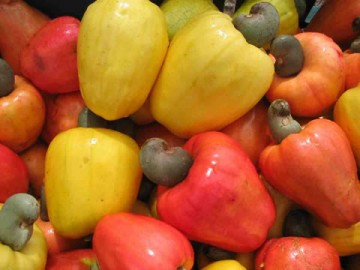There are no products in your shopping cart.
| 0 Items | £0.00 |

 VIETNAM recently rejected 37,000 tonnes of Nigerian cashew over a major pricing disagreement as market volatility led to Vietnamese banks withdrawing trade finance resulting in the cancelation of shipments.
VIETNAM recently rejected 37,000 tonnes of Nigerian cashew over a major pricing disagreement as market volatility led to Vietnamese banks withdrawing trade finance resulting in the cancelation of shipments.
Nigeria is currently the world's largest cashew producer with an annual output of 922,000 tonnes but because of limited processing facilities, these nuts are shipped to Vietnam and India for processing. Last year, cashew kernel prices dropped to $7,500 per tonne in November from $9,500 at the beginning of the year, epitomising the volatility within the market.
Peter Bakare, the deputy executive secretary of the Federation of Agricultural Commodity Associations of Nigeria (Facan), said price volatility was due to a lack of a conducive business environment. He added that this made the price of raw cashews from Nigeria to be higher than the price of finished products on the international markets.
Mr Bakare said: “The banks in Vietnam that usually provide the loans to their buyers for purchases complained that the prices of the finished products are less than the price of raw materials. Vietnam's financial institutions, therefore, backed out of the business, stressing that it is not a profitable venture for its farmers, so the produce is stuck in Vietnam now."
He added that over 67,000 tonnes of cashews are also still lying in the warehouse in Nigeria, unpurchased and unprocessed. He, however, said the Nigerian hibiscus flower, popularly called Zobo, adjudged to be one of the best in the world, was in high demand internationally.
In addition, Mr Bakare said that there was also a high demand for Nigeria’s shea butter in the international market and it is estimated that if well harnessed this could generate more than $2bn annually. He added that Facan as the apex body for over 45 commodity associations in Nigeria, was doing its best to serve as a one-stop shop to link farmers and private sector operators.